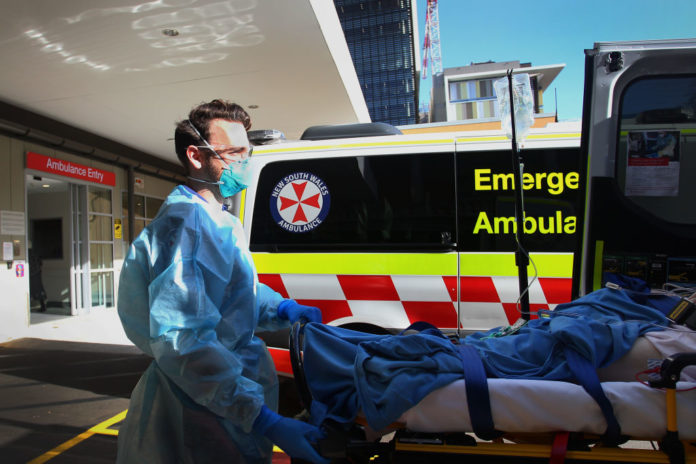Paramedics say that more investment and reform to triage are needed to address excessive wait times at NSW emergency departments, with ambulances currently stuck in queues of up to five hours waiting outside hospitals to offload their patients.
The Australian Paramedics Association (NSW) says worsening ‘bed block’ is a symptom of poor management and resourcing across the healthcare system, and is contributing to call backlog, Paramedic fatigue, and slow emergency response times.
“Waiting in a queue outside a hospital for four, five hours at a time is an appalling waste of the specialised skills and training of our Paramedic workforce”, said APA (NSW) President, Chris Kastelan.
“At Wyong hospital this week, we had more than a dozen ambulances stuck outside and patients waiting five hours to be admitted.
“It’s the same from Lismore to Shoalhaven, and throughout the Sydney basin. This week Westmead Hospital had a specialised Intensive Care vehicle waiting for four hours—which is four hours that level of care remains unavailable to the community its supposed to serve.
“For this to be happening all around the state—it’s a clear sign of a healthcare system in crisis.”
The union says inefficiencies and ED delays have follow-on effects across the healthcare system.
“While those Paramedics are stuck waiting, the number of queued jobs keeps building up—which means more often than not, crews are being asked to forego meal breaks and stay back for overtime.
“Bed block also puts extra strain on dispatch workers, who have to cover call demand with fewer resources while those crews stuck at hospital are unavailable.
“Across the board, it contributes to a workplace where Paramedics are frustrated, exhausted, and burnt out, while patients wait longer for an ambulance and often fail to get the care they deserve.”
APA (NSW) says reform to triaging and urgent investment in more staffing are required.
“If this Government wants to fix the problem then they need to get qualified clinicians working within dispatch teams on secondary triage.
“All too often, ambulances wait this long because their patients are assessed as low-acuity.
“If that patient can be cared for more efficiently and more effectively outside of hospital, it’s absurd to use this many resources and make them wait this long to be transported there.
“One of the quickest ways to intervene would be providing better funding and support to Extended Care Paramedics, who have the skillset to provide specialised care within a patient’s home and keep them out of hospital.”


